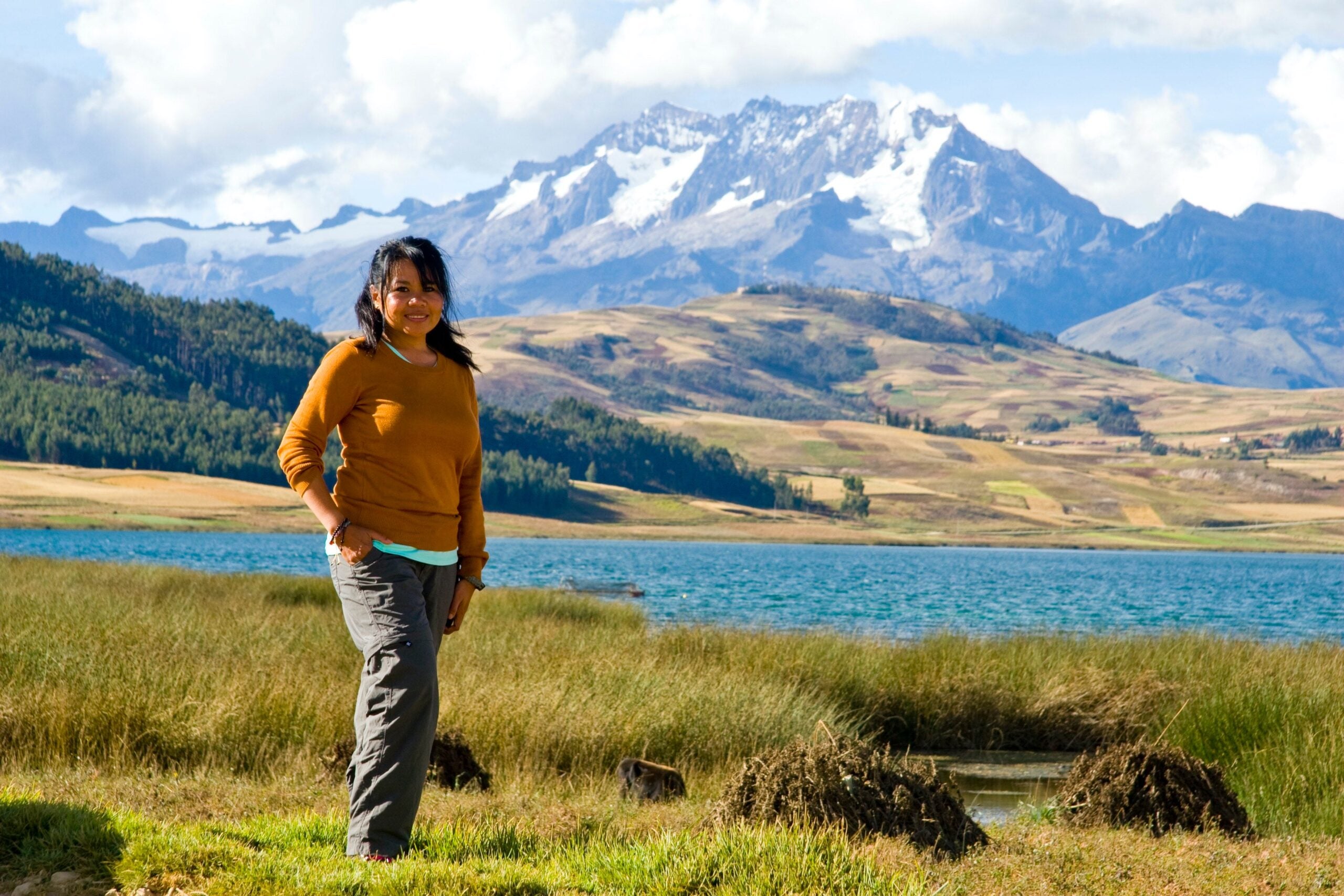Marinel de Jesus started hiking through Meetup.com, an online community where people can organize group gatherings, 18 years ago in the Washington D.C. metro area, where she worked as a lawyer. Most of the leaders and participants were white men and she felt alienated as an Asian woman. They spoke to only one another, avoided eye contact with her, and the conversations died when she tried to engage with them.
Since joining the outdoor industry—first as a hiker and now as the founder of Brown Gal Trekker and The Porter Voice Collective—de Jesus has experienced anti-Asian microaggressions, verbal assaults, and online attacks which she has written about in various publications (like Appalachian Mountain Club and ���ϳԹ���).
In March, de Jesus wrote a blog post that caught our attention, “Say Something Because Hatred is Killing Us: Dismantling The AAPI Invisibility Problem in the Outdoors.” We reached out to de Jesus about the Stop AAPI Hate movement and the responsibility that the outdoor industry to take a stance. Below is our edited conversation with her.
Have you experienced anti-Asian racism in the outdoors?
Yes. In the Meetup hiking groups, men would sometimes ask, “Where are you from?” When I said I was from D.C., they woild reply, “No, where are you from?” I knew exactly what they were implying, so I’d respond, “I’m Filipina.” They would then say, “Oh, you’re from the Philippines.” I didn’t say I was born there; they just assumed I was a foreigner. I’m an immigrant, but I don’t say “immigrant” because I hope people won’t bother me if they think I’m U.S.-born.
People would also joke about other Asian ethnicities around me, like make fun of Chinese people, for instance. Even if they were targeting others, it still affected me.
But the worst encounters have been with people I pass on trails in the middle of nowhere. They’ve called me ‘chink’ or said “konnichi wa” to me. Some have even said, “What are you doing here? Go back to your country,” before laughing.
Have you experienced increased Asian racism in the last year?
I have online. For example, when the Appalachian Mountain Club blog published my experience with racism six months ago, the Facebook comments were bad. It really traumatized me and took me back to the times when people have been racist in-person toward me. I thought writing the blog was going to expand people’s minds, but there was more negative than positive, and it discouraged me from writing about my own personal experiences. Unfortunately, I didn’t see any defense coming from the publication.
I realize there’s danger with being an advocate and publishing your stories, but publications shouldn’t exploit my voice without offering any kind of support when trolls go after me.
Many outdoor companies outsource their production to factories in Asian countries, and yet we haven’t seen much commentary from the industry about AAPI hate. What are your thoughts on that?
At the Outdoor Retailer shows, I observed that the conference was divided into leading brands dominating the main floors and a totally separate area—almost hidden on the basement level—populated by Asians and their businesses on the supply and manufacturing side. That’s the extent of visibility of Asian faces at OR with the exception of one to five AAPI people that I’ve seen on the mainstream side of the show.
Outdoor brands are reliant and dependent on Asian-owned businesses, manufacturers, laborers, and suppliers. The industry cannot function without them. We are giving you cheap labor. The people making your clothes in the Philippines could be my relatives or friends. If the outdoor industry is doing something illegal, unethical, immoral, and inequitable in China, Bangladesh, India, or the Philippines where they manufacture stuff, that’s relevant to Asian Americans in the U.S. There is no disconnect.
We’re giving you what you want in terms of maximizing your profits in this industry and because of that, it creates a level of obligation and responsibility for you to take measures and a stance on the rising levels of AAPI racism in the U.S.
Do you think the outdoor industry makes space for Asian voices and recognizes racism toward AAPI?
When it comes to advocacy, Asian Americans are kind of left behind. I could speculate it’s because of our proximity to whiteness, or that we’re labeled as a “model minority.” Not only are we marginalized and experiencing a hate epidemic, but we’re seen as not having a racism problem. This is why Stop AAPI created a database of anti-Asian race incidents—so we can create a case that we do have these problems.
Based on my observation with outdoor panels, I also feel like we’re always the last ones to get the microphone. I want someone to speak on behalf of my own lived experience, but I feel like if someone wants conversations about diversity, equity, and inclusion, they look for voices among other ethnic groups, even though there are Asian-American advocates across the outdoor space, like the leaders of Outdoor Asian and Climbers of Color.����
Last year, I was trying to urge certain organizations to say something about the rising anti-Asian hate epidemic, but I got dismissed. So I started looking at the outdoor industry to see if anyone was speaking up and who the allies were. There was nothing, even when the violence was getting worse. I think in February or early March I finally saw The North Face post something about stopping AAPI Hate. The North Face said, explicitly, that they support their AAPI community and are against the violence. It had an amazing impact on me. I felt visible. I hate to say that because I did some research on The North Face and the company has had some labor issues in Bangladesh and India, but I did feel better seeing that post.
What advice do you have for the outdoor industry professionals to create a more welcoming environment and to provide more allyship to the AAPI community?
I would like advocacy for AAPI in the outdoor industry to be more visible. In terms of brands and companies, they may be posting about their solidarity or bringing on Asian-American ambassadors and athletes, but behind that, what is the real work that they’re doing for the Asian-American community? Companies need to value their communities, take a stance, speak up, create spaces, donate, or fund something versus simply promoting token Asian-American ambassadors or athletes.
The recent AAPI chat put on within the Basecamp community was an eye-opening experience. For one, it became apparent that AAPIs face a multitude of issues in the outdoor industry, which can be diverse in and of itself, as we come from various backgrounds and experiences. There were honest discussions about being an AAPI in the outdoor industry and tackling the issue of “privilege,” and how that privilege can be used to elevate AAPIs. There were also concerns raised about career advancement and how to navigate a space that is still predominantly white.
Given the complexities of the AAPI identity and the nuances of being an AAPI in the outdoor industry, it would be of great benefit to continue the AAPI chat, but with clear guidelines on how to conduct conversations and ideally include a panel of AAPIs from diverse backgrounds for each session.


